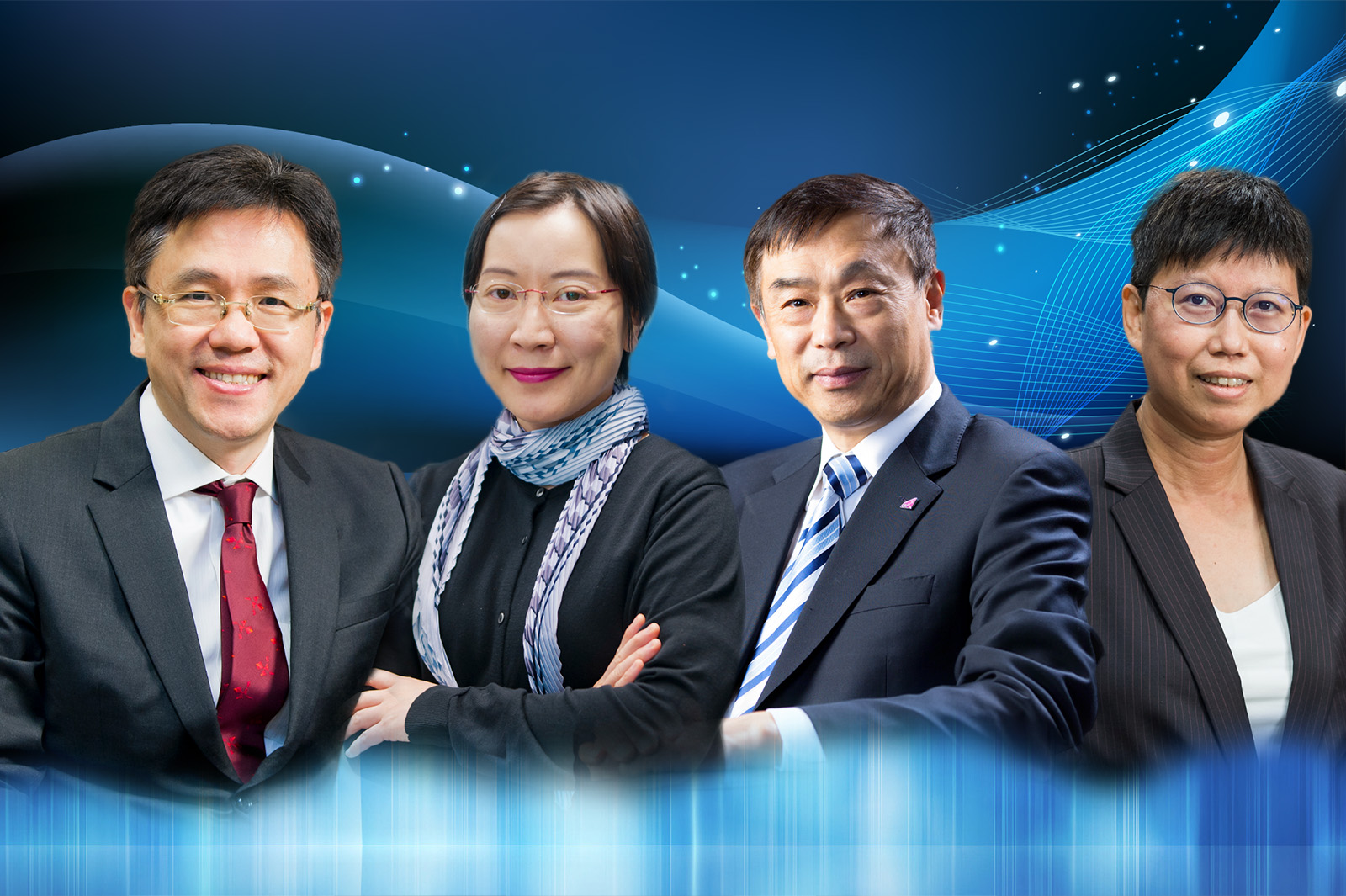
Funding worth HK$19 million has been secured for four highly competitive collaborative research projects into Covid-19 led by scholars at City University of Hong Kong (CityU).
The research spans biomedical engineering, environmental sciences, supply chain management, and law and policy, and the funding comes from the One-off CRF Coronavirus Disease and Novel Infectious Disease Research Exercise of the Collaborative Research Fund (CRF) under the University Grants Committee in support of research into any field related to Covid-19.
Professor Sun Dong of the Department of Biomedical Engineering is spearheading a project that has been awarded HK$6.2 million for developing a novel vaccination strategy that uses a microrobot platform for DNA vaccine delivery and antigen presentation.
“The development of an effective vaccination strategy to control the outbreak of Covid-19 is urgently needed,” said Professor Sun. “All vaccines currently being used, regardless of whether they are based on nucleic acid (DNA/RNA) or proteins, have the problem of easy degradation and rapid loss of function. We must consider how they are to be delivered to target cells accurately and quantitatively.”
His team will develop hydrogel-based degradable microrobots capable of sustained and controlled drug release for the provision of safe, accurate, and quantitative vaccines to control Covid-19.
Dr Carol Lin Sze-ki, Associate Professor in the School of Energy and Environment, is coordinating a project on reducing the transmission of the novel coronavirus and other infectious diseases using food waste-derived medical textiles via electrospinning for healthcare apparel and personal protective equipment (PPE).
“PPE is currently a hot topic,” said Dr Lin, whose project attracted HK$5.5 million in the one-off collaborative exercise. “It is probably the most discussed and emotive subject for front-line healthcare workers who work with patients with the coronavirus disease.”
The aim is to develop food waste-derived non-woven medical textiles via electrospinning for healthcare apparel to limit the transmission of Covid-19. Electrospinning is a manufacturing technique using electric force to draw together charged nano-fibre threads. The fabricated non-woven medical textiles will be examined by standard methods to ensure the performance of the textiles meet the expected standard for medical mask materials.
“Technology-integrated biorefineries focus on the material recovery approach to resolving the twin problems of the global waste burden and severe PPE shortages. This is an evolving area where research and development is urgently needed,” Dr Lin said.
Professor Yan Houmin of the Department of Management Sciences and his fellow collaborators are exploring resilient PPE supply chains for Hong Kong health systems, both for now and in the post Covid-19 era.
This HK$4.2 million project calls to treat PPE as a supply chain management matter rather than a procurement issue. The project plans to study topics such as predicting PPE demands in terms of conventional, contingent, and critical healthcare needs; conducting PPE supply chain characterisation and stress test; and providing data-driven predictive insights to combat current and future pandemics.
“We propose to develop resilient PPE supply chains for Hong Kong health systems, with the ultimate objective of exploring the possibility of redesigning the PPE workflow and supply chain in order to respond resiliently to infectious diseases in the future,” said Professor Yan.
Professor Wan Wai-yee of the School of Law is investigating with her collaborators insolvency and restructuring aspects of law and policy in response to Covid-19.
“The number of insolvency filings by otherwise economically viable firms globally is expected to rise significantly,” explained Professor Wan, whose project received HK$3.1 million. “The collapse of small and medium size enterprises will have a serious economic impact in Hong Kong.”
Her project will evaluate how effective current insolvency and restructuring laws are in rescuing otherwise economically viable businesses and whether the proposed reforms will serve as an effective second line of defence.
“Focusing on the SMEs, we evaluate whether Hong Kong should adopt legislation based on a universal standstill on the performance of certain kinds of contractual obligations found in the UK and Singapore,” she said.
In addition, research led by Professor Wang Zuankai of the Department of Mechanical Engineering as a regular CRF project has received HK$4.8 million for his studies into a universal solid/liquid-based framework for efficient water energy harvesting.


